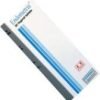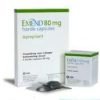No products in the cart.
Return To ShopNo products in the cart.
Return To Shop$1,220.00 – $2,417.00Price range: $1,220.00 through $2,417.00
Enbrel (etanercept) is a biologic TNF blocker that treats moderate to severe rheumatoid arthritis, psoriatic arthritis, ankylosing spondylitis, polyarticular juvenile idiopathic arthritis, and chronic moderate to severe plaque psoriasis. This injectable medication works by blocking tumor necrosis factor (TNF), a protein causing inflammation and joint damage in autoimmune diseases. For patients seeking online medicine shopping options, working with healthcare providers ensures proper infection screening before starting, ongoing TB and hepatitis monitoring, and access to genuine treatments through legitimate get meds online services requiring refrigeration.
Enbrel is a groundbreaking biologic medication that’s been helping people with autoimmune diseases since its FDA approval in 1998. The drug is a fusion protein—combining two tumor necrosis factor (TNF) receptors with part of a human antibody—that blocks TNF-alpha, the “master regulator” of inflammatory responses in many autoimmune conditions. With over 16 years of clinical experience and data showing sustained effectiveness for up to 10 years of continuous use, Enbrel has become a cornerstone treatment for several debilitating autoimmune diseases.
Unlike traditional disease-modifying medications, Enbrel is a large biological molecule (molecular weight 150 kDa) produced through recombinant DNA technology. It’s administered by subcutaneous injection, typically 50mg once weekly for adults with rheumatoid arthritis, psoriatic arthritis, and ankylosing spondylitis. Dosing varies for other indications and pediatric patients. The medication comes in prefilled syringes, autoinjector devices (SureClick), or multiple-dose vials that patients can learn to self-inject at home after proper training.
How Enbrel Blocks Inflammation: TNF-alpha is a naturally occurring cytokine your immune system produces to trigger inflammation. In healthy people, TNF helps fight infections and heals injuries. But in autoimmune diseases like rheumatoid arthritis and psoriasis, your body produces too much TNF, causing chronic inflammation that damages joints and tissues. Enbrel works by binding to TNF molecules in your blood and tissues before they can attach to cells and trigger inflammatory responses.
The drug mimics naturally occurring soluble TNF receptors but has a much longer half-life in your bloodstream, providing sustained anti-inflammatory effects. By blocking TNF, Enbrel reduces swelling, pain, and stiffness in joints, slows joint damage progression, improves physical function, and clears psoriasis plaques. The medication typically starts working within 2-4 weeks, with maximum benefits often seen by 3 months of treatment.
FDA-Approved Indications: Enbrel treats multiple autoimmune conditions. For rheumatoid arthritis (RA), it reduces signs and symptoms, inhibits structural joint damage, and improves physical function in moderate to severe cases. It can be used alone or combined with methotrexate. For polyarticular juvenile idiopathic arthritis (JIA), it’s approved for ages 2 and older to reduce symptoms and improve function.
In psoriatic arthritis, Enbrel reduces symptoms, prevents joint damage, and improves function, with or without methotrexate. For ankylosing spondylitis, it reduces signs and symptoms in active disease affecting the spine. For plaque psoriasis, it’s approved for adults and those 4 years and older with chronic moderate to severe disease who are candidates for systemic therapy or phototherapy. For patients managing autoimmune conditions alongside other health issues requiring medications from online drugstore services, Enbrel can often be continued with NSAIDs, corticosteroids, or analgesics.
Clinical Trial Evidence: Studies involving over 15,000 patients demonstrated Enbrel’s effectiveness and safety profile. In RA trials, patients experienced significant improvements in ACR response criteria (measures of joint tenderness, swelling, pain, and function), with benefits maintained over years of treatment. Long-term data showed sustained improvements across multiple efficacy measures in patients continuing treatment for up to 10 years, with safety profiles remaining consistent.
In psoriasis studies, patients achieved dramatic skin clearance, with many reaching PASI 75 (75% improvement in psoriasis severity) or better. The medication worked faster than traditional systemic therapies and maintained effectiveness with ongoing treatment. Importantly, Enbrel was the first biologic to publish 10-year continuous use data, demonstrating both durability of response and acceptable long-term safety.
Critical Black Box Warnings – Serious Infections: The FDA requires a prominent black box warning about increased infection risk. Because Enbrel suppresses part of your immune system, you’re more susceptible to serious infections that may lead to hospitalization or death. These include bacterial sepsis, invasive fungal infections (histoplasmosis, coccidioidomycosis, candidiasis), and opportunistic infections.
Tuberculosis (TB) is a particular concern—both reactivation of latent TB and new TB infections have occurred. Before starting Enbrel, you must be tested for TB with a tuberculin skin test or blood test. If you have latent TB, you’ll need preventive TB treatment before beginning Enbrel. During treatment, watch for TB symptoms like persistent cough, weight loss, fever, and night sweats. Don’t start Enbrel if you have any active infection, and contact your doctor immediately if you develop fever, cough, flu-like symptoms, or open sores while on treatment.
Regular follow-up with your rheumatologist or dermatologist ensures the medication is working effectively and you’re not developing complications. Many patients continue Enbrel for years with excellent disease control and acceptable side effects, but ongoing medical supervision is essential. For those managing autoimmune diseases alongside other conditions requiring medications from medicine delivered to your door services, coordinate care among all your healthcare providers for optimal safety and effectiveness.
| Brand | Enbrel Brand |
|---|---|
| Form | 25mg 4 Injection, 50mg 4 Injection |
Common side effects include injection site reactions (redness, itching, pain, swelling at injection sites), upper respiratory infections (sinus infections, colds), and headaches. In general, side effects in children were similar to adults, with infections being mild and typical for their age group. Most injection site reactions are mild and occur in the first few months of treatment, improving over time.
Serious side effects requiring immediate medical attention include signs of serious infection (fever, chills, persistent cough, flu-like symptoms, open sores), TB symptoms (persistent cough, weight loss, night sweats), nervous system problems (vision changes, numbness or tingling, seizures, dizziness), blood disorder signs (easy bruising, unusual bleeding, persistent fever, pale skin, extreme fatigue), heart failure symptoms (shortness of breath, swelling ankles/feet, sudden weight gain), severe allergic reactions (difficulty breathing, facial swelling, severe rash), or signs of lupus-like syndrome (chest pain that worsens with breathing, joint pain, butterfly rash on cheeks).
Long-term risks include increased cancer risk (particularly lymphomas, skin cancers), serious infections potentially leading to hospitalization, hepatitis B reactivation in carriers, demyelinating diseases affecting nerves, blood disorders (some fatal), and new or worsening heart failure. The infection risk persists throughout treatment and increases when combined with other immunosuppressants. Regular monitoring helps detect these serious problems early. Report all concerning symptoms when using cheapest online pharmacy or to your healthcare provider immediately for proper evaluation and management.
Enbrel is FDA-approved for moderate to severe rheumatoid arthritis to reduce signs/symptoms, inhibit structural damage progression, and improve physical function (can be used with methotrexate or alone), polyarticular juvenile idiopathic arthritis and juvenile psoriatic arthritis in those 2 years and older to reduce symptoms, psoriatic arthritis to reduce signs/symptoms, prevent joint damage, and improve function (with or without methotrexate), active ankylosing spondylitis to reduce signs and symptoms, and chronic moderate to severe plaque psoriasis in adults and those 4 years and older who are candidates for systemic therapy or phototherapy.
Dosing is typically 50mg subcutaneously once weekly for adults with RA, PsA, and AS. Pediatric dosing varies by weight and condition. The medication is given by injection into thigh, abdomen, or upper arm, rotating sites at least 1 inch apart. Enbrel works by blocking TNF-alpha, reducing inflammation, joint damage, and psoriasis plaques. Most patients notice improvement within 2-4 weeks, with maximum benefits by 3 months. Long-term data shows sustained effectiveness for up to 10 years. The medication requires refrigeration and proper handling. Due to serious infection and malignancy risks, patients need TB testing, infection screening, and ongoing monitoring. When ordering prescription medication online, ensure specialty pharmacy services maintain cold-chain shipping for this biologic requiring temperature control throughout storage and transport.
Many patients notice improvement within 2-4 weeks, but maximum benefits often take 3 months. Some people respond faster than others. If you don't see any improvement after 3-6 months, your doctor may try a different biologic. Studies show benefits are maintained with long-term use—data exists for patients continuing successfully for up to 10 years.
Don't stop without discussing with your doctor. These are chronic conditions that typically flare when medication is discontinued. Many patients need ongoing treatment to maintain symptom control and prevent disease progression. Your doctor can help assess whether you might try reducing frequency or stopping, but this should be done under medical supervision.
Enbrel suppresses your immune system, which can allow dormant TB bacteria to become active and cause serious infection. Testing identifies latent TB so you can receive preventive treatment before starting Enbrel. This dramatically reduces your risk of developing active TB while on the medication. You'll also be monitored for TB symptoms throughout treatment.
You can receive inactivated (killed) vaccines but should avoid live vaccines. Update routine vaccinations before starting Enbrel if possible. Live vaccines like measles-mumps-rubella (MMR), varicella (chickenpox), nasal flu vaccine, and others should be avoided during treatment and for 3 months after stopping Enbrel due to infection risk from weakened viruses in these vaccines.
Keep Enbrel refrigerated (36-46°F) in the original carton to protect from light. Don't freeze—discard if frozen. You can keep it at room temperature (up to 77°F) for single use within 14 days if needed. Let syringes warm to room temperature (15-30 minutes) before injecting. When shipped, ensure proper cold chain with ice packs.
Yes, through specialty pharmacies that handle biologics properly. Enbrel requires refrigeration during shipping and storage, so standard pharmacies may not be appropriate. Work with specialty pharmacy services experienced with biologics that provide cold-chain shipping. These medications are expensive (thousands monthly), so explore manufacturer assistance programs. Ensure you're using legitimate electronic pharmacy services that maintain proper handling for this temperature-sensitive medication requiring ongoing medical monitoring.
The content on this page has been supplied to onlinepharmacynow.com by an independent third party contracted to provide information for our website. onlinepharmacynow.com relies on these third parties to create and maintain this information and cannot guarantee the accuracy or reliability of the information that has been provided to us.
The drug information provided here is only a summary and does not contain all the list of possible side effects and drug interactions regarding this medication. Be sure to contact your doctor or pharmacist if you have any specific question or concern. If you require any advice or information about the drugs on this page, a medical condition or treatment advice, you should always speak to a healthcare professional.
Please note that not all products, including any referenced in this page, are shipped by our affiliated Europe Pharmacy. We are affiliated with other dispensaries that ship product to our customers from the following jurisdictions: Canada, New Zealand, Turkey and United Kingdom. The items in your order maybe shipped from any of the above jurisdictions. The products are sourced from various countries as well as those listed above. Rest assured, we only affiliate with our authorized dispensaries that procure product through reliable sources.
Required
Send Your Prescription
Secure Payment
No Hidden Fees
Fast Shipping
Typically Under 7 days
From: $95.00


$178.00

 Ask an expert
Ask an expert
